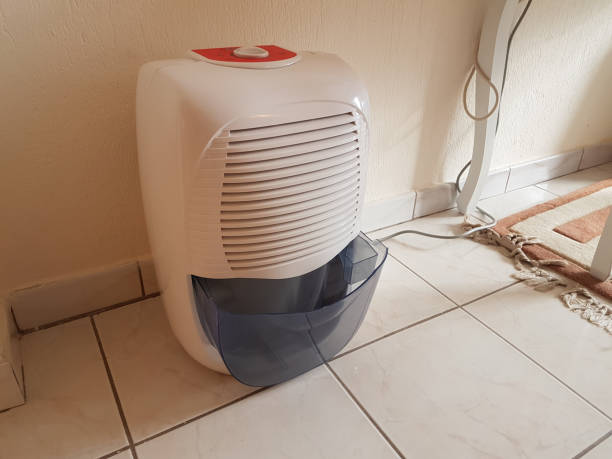May 07, 2022

It's not about the heat, as the adage goes it's the humidity.
Inside, moisture could be a massive trouble-- specifically in cellars,
utility room, bathrooms, and also crawl spaces-- at any time there is actually a
cord of cozy, bad patches.
You can detect if there is a smelly or sour odors, or condensation on
windows. It can also create conditions for mold and mildew to develop and grow
on your walls and ceilings and also make wood brittle.
A commercial
dehumidification pulls water from the air, collecting the water into an open
tank. But not all are up to the task.
Set Your Dehumidifier to Work
This expert advice is taken from CR and Energy Star on how to make the most
the dehumidifier you have.
Adjust the humidity
Energy Star states that the best relative humidity is between 30-50 percent
and 40 percent in regions with less heating seasons. A higher level of humidity
can lead to allergies, like dust mites and mildew.
Choose the perfect spot
Make sure you leave enough space for air to flow into and out of the
dehumidifier. Most of the models in our ratings let air out through the top,
however some vent it out from the sides. They should not have obstructions in
the commercial air purification. Specific information for your model will be
available in the owner's manual.
Make sure to regularly empty the tank
The indicator will flash in the event that the tank is empty and the
dehumidifier shuts off. In the summer it is recommended to empty the tank
regularly to keep the dehumidifier working even when you're away. It is also
possible to connect a hose to one of the dehumidifiers that have been tested to
redirect the water towards an outlet nearby. Some dehumidifiers are equipped
with a pump that pushes water horizontally or vertically through the hose and
into a sink or outside (through a basement window such as a window in a
basement, for instance.).
Make sure it is tidy
The filter is a filter that filters the air passing through the home
dehumidifier. If the filter is dirty, the effectiveness of the dehumidifier
is affected. A lot of the models we have reviewed come with an indicator light
that will inform you that it's time to clean the filter. Follow the instructions
in the manual to wash and dry the filter. While you're at it follow the
instructions in the manual on how to clean the grill. Airflow slows when the
grill is dirty.
Other Ways to Deal With Dampness
The most efficient dehumidifiers will not remove the dampness that can be
found within your home. Here's your checklist for controlling moisture for
potential sources inside as well as outside of the home:
Switch on the exhaust fan.
While you cook or after showering, switch on the range hood or exhaust fan to
get rid of moisture from the area. No fan? Make sure you open an unlit
window.
Clean your clothing dryer air duct
A clean duct lets the hot exhaust air to the outside. Clearing the duct of
lint will allow for more airflow. This allows your laundry to dry faster and
also prevent dryer fires.
Review your foundation
Water can seep into even the small cracks. Fill cracks smaller than 1/4 inch
in width with silicone caulk or hydraulic cement. If you spot large cracks, you
should seek out a structural engineer as they may indicate a structural
problem.
Examine the soil's gradation
The foundation should be sloping away from your home's foundation to prevent the water from accumulating. Don't overwater plants that are near the foundation.
Posted by: HamzaqShaffer at
04:04 AM
| No Comments
| Add Comment
Post contains 617 words, total size 4 kb.
32 queries taking 1.3844 seconds, 52 records returned.
Powered by Minx 1.1.6c-pink.









